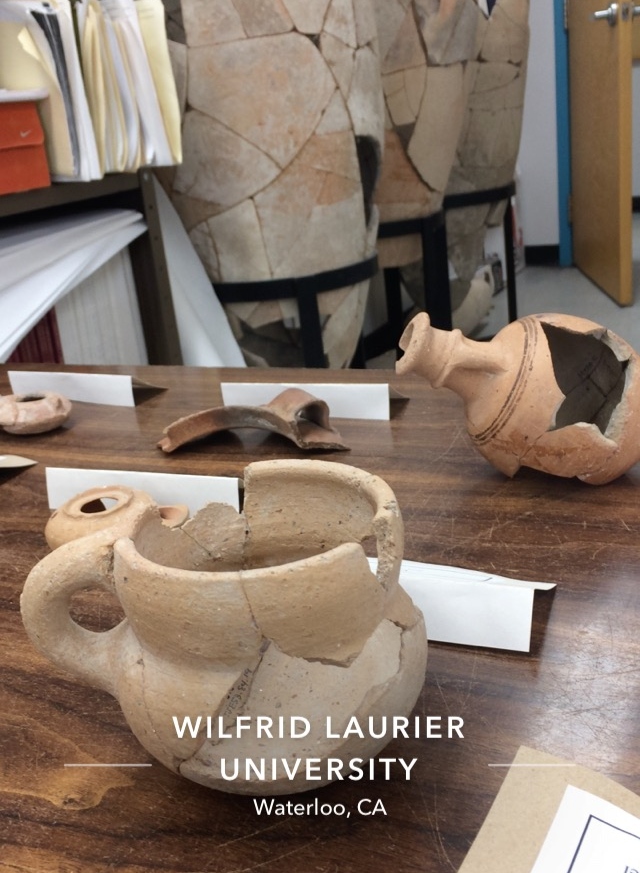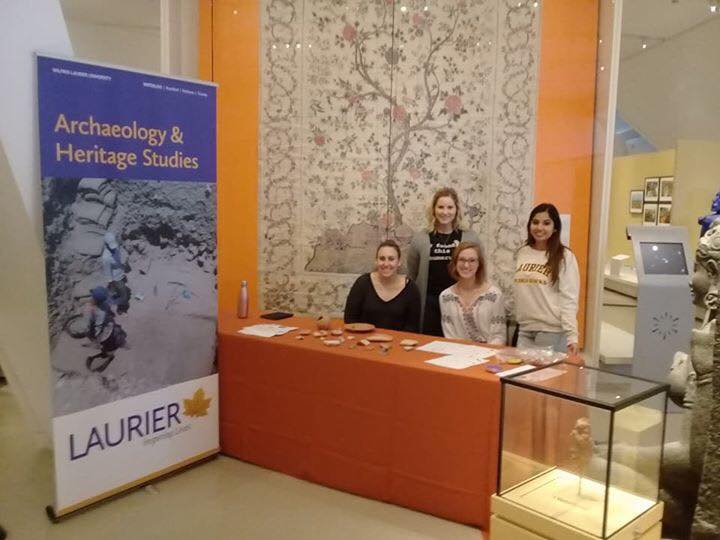What happens outside the field school?
On-campus projects

Display of artifacts in the WLU collection (photo by H. Birdi)
Students have the opportunity to get involved in on-campus research projects at Wilfrid Laurier University to learn more about the town of Nebo. This includes volunteer opportunities in the archaeological laboratories to work with artifacts from Khirbet al-Mukhayyat. Students learn how to draw different types of pottery and apply their skills to draw pottery sherds from Jordan. By the end of this project, students become experts in understanding the different types of pottery including the wares, chronologies, and purpose of the pottery sherds.
Laurier Work-Study Program

Celebrating Archaeology Day at the ROM with a display of artifacts found by Laurier Students (featuring: Samantha Mittleman, Heather Robinson, Ashley Paling and Harpreet Birdi) (Photo by D. Foran)
Students have the opportunity to participate in the Laurier Work-Study Program (LSWP) to contribute towards research projects. This includes working with artifacts from Khirbet al-Mukhayyat, drawing pottery and learning how to digitize pottery and objects drawings which can be documented and published. Additionally, students will have the chance to teach their fellow students the proper techniques and skills used to draw pottery. They will also be able to participate in Laurier Open House and archaeology day at the Royal Ontario Museum where they can provide others with information about Laurier’s archaeology program and projects.
Preparations for Dig Night
The WLU Archaeology Society organizes the annual Dig Night event on campus to provide students with information about the upcoming field schools. The Town of Mount Nebo will be continuing their field school and excavation project in the summer of 2023. Students will have the exciting opportunity to learn more information about the dig, ask questions and begin preparing for the excavation.
Click on the “Blog” tab for further information about the research projects and daily life during the field schools.
